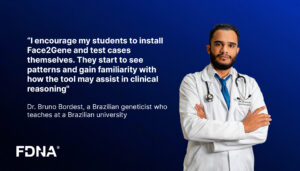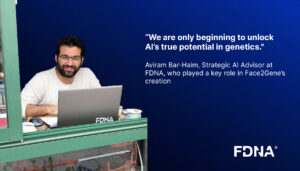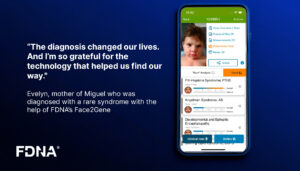May 29, 2018
SCOPE BLOG
“The ability to share patient data using technology is beginning to blur the notion of “rare” diseases and is offering more options to identify and treat conditions previously considered undiagnosed. FDNA uses an AI algorithm to collect data on symptoms, features, and genomics related to rare conditions, and share the information and insights among clinicians and researchers.”
In the article, experts discuss the pivotal role of health data and AI in advancing precision health. FDNA’s innovative Face2Gene platform is highlighted for its utilization of facial recognition technology to expedite the diagnosis of rare genetic disorders. By analyzing health data and facial features, Face2Gene offers critical insights into rare diseases, enabling faster and more precise diagnoses. The panelists emphasized the transformative impact of incorporating big data and AI decision support tools in precision health, showcasing how technologies like Face2Gene can enhance patient outcomes through personalized medical approaches.


